Neil Postman
Writing and literacy –or so Postman, based on Huxley argues– has caused our grasp of knowledge to shrink.
"We are all, as Huxley says someplace, Great Abbreviators,
meaning that none of us has the wit to know the whole truth, the time
to tell it if we did, or the audience so gullible as to accept it."
Postman's use of this example indicates that any form of communication is --inherent in our recall and verbalizations-- but a glance at what
is intended by the speaker, or writer, or composer and can only be a reflection
of what takes place in the mind of the person creating the message.
There is in the telling of any event, even real events, some
loss or "abbreviation" of what actually transpired. In this
respect there are several truths with respect to the same events, stories,
incidents or histories.
p. 6.

The conversation or discourse
"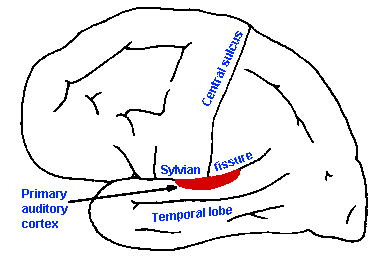 I
use the word conversation metaphorically to refer to not only to speech
but to all techniques and techniques that permit people of a particular
culture to exchange messages."
I
use the word conversation metaphorically to refer to not only to speech
but to all techniques and techniques that permit people of a particular
culture to exchange messages."
"How forms of public discourse regulate and even dictate what kind of
content can issue."
p. 6
"You cannot use smoke (signals) to do philosophy. Its form excludes the
content."
P. 7
"For on television, discourse is largely conducted through visual imagery,
which is to say that television
gives us a conversation in images, not words."
p.7

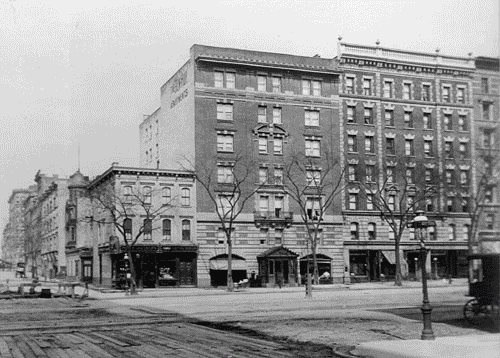
The media used restricts the range of meaning
transmitted.
His (NP) focus:
• a critique of a growing insensitivity and
• thus a widespread unawareness to the limitations imposed
on on how we contemporary people conceptualize experiences, express
their condition and convey concepts -- especially the content of a message.
• transfer of ideas is affected by the means we use to transmit
messages.
"lacking a technology to advertise them, people would not attend
to them, could not include them in their daily business."
POSTMAN, p.7.
An extreme
example of this is when some people think
"If it is not on TV it
did not happen." They mean of course that important
matters --worthy of our paying attention to-- are, and of a habit
end up, on television, radio, or the internet. We therefore don't have
to pay attention to unreported events.
Next
Postman:
Amusing Ourselves
to Death
premise
His critique suggests
a very widespread and growing insensitivity to the limitations imposed on conceptualization and the transfer of ideas by the means we use to transmit
messages.
"For, like the printing press, television is nothing less than
a philosophy of rhetoric. To talk seriously about television, one
must therefore talk epistemology."
"Epistemology is a complex and usually opaque subject concerned
with the origins and nature of knowledge. The part of its subject
matter that is relevant here is the interest it takes in definitions
of truth and the sources from which such definitions come."
p. 17.
"I want to show that definitions of truth are derived, at least
in part, from the character of the media of communication through
which information is conveyed."
p. 17.
"Media are implicated in our epistemologies."
Authors who influenced Postman:
- Northrop Frye on "resonance."
and the "grapes of wrath" iconography.
- Roland
Barths on mythology as making the invented seem natural.
- Aldous Huxley on the necessity of comprehending
the politics of inquiry.
- Lewis Mumford as one of our "great noticers."
That is Mumford was a "watcher" who then reported what
he noticed. Postman says of Mumford, that "he is far more
interested in how a clock creates the idea of 'moment to moment'....He
attends ...to clocks as metaphor,about which education has little
to say and clock maker's nothing at all."
Lewis
Mumford
Next |
 Teaching
as a Subversive activity Among Postman's earliest works was
a book about modern (1960s) education in a rapidly accelerating
world. By accelerating he meant both in terms of the substance and
the means of conveying new bodies of knowledge side by side with older belief systems. Foremost in this vanguard
of learning was the revolutionary accumulation of new knowledge
that displaced older traditions such as the discovery
of DNA, atoms, or quarks. Teaching
as a Subversive activity Among Postman's earliest works was
a book about modern (1960s) education in a rapidly accelerating
world. By accelerating he meant both in terms of the substance and
the means of conveying new bodies of knowledge side by side with older belief systems. Foremost in this vanguard
of learning was the revolutionary accumulation of new knowledge
that displaced older traditions such as the discovery
of DNA, atoms, or quarks.
Until his death in 2003, Dr. Neil Postman was a faculty
member of the education department of NYU. Originally a Ph. D. in
English, from Columbia University's Teachers Collage, Postman was
concerned with the impact of media on discourse and vice versa.
His research and writing focused on the impact of
media on the substantive or informational content of education.
He was fond of explaining how young children spent more time being
influenced by the passivity and coolness of the television. This
he dramatically argued exposed us to 300,000 advertisements before
we ever enter a schoolroom. |
Tools
that disturb the status quo
Books have not always existed, nor the paper the words are imprinted
upon, but words from spoken language are so old we are not aware
of when they emerged in the human species. Homo erectus may have used language, Homo Sapiens neanderthalensis are believed to have had the use of music and language.
In the past information was passed
down from generation to generation in lyrical songs, long (epic)
poems, or ritual behavior, long before written records emerged.
Postman related a story about the
replacement of spoken language by writing based on an ancient
fable from Plato.
 His
point was to show readers that each new advantage derived from inventions
is wrapped around disadvantages. Postman argues that whether
we clearly see it or not there is, as it were, hiding in every device
and medium we use, an unseen quality. His
point was to show readers that each new advantage derived from inventions
is wrapped around disadvantages. Postman argues that whether
we clearly see it or not there is, as it were, hiding in every device
and medium we use, an unseen quality.
 This hidden quality covers over the true cost of any presumed benefits
derived from new tools, or technologies that foster new techniques. This hidden quality covers over the true cost of any presumed benefits
derived from new tools, or technologies that foster new techniques.
For
example: in media, the radio makes
use of only audio signals and that is different from the television
which makes use of visual and audio signals. The content of these mediums differ, according to Postman in
how the transmit information and what meaning is contained in the
message they convey.
Type,
hence the typographical medium of printing in papers, magazines
and printing, as opposed to paintings or photographs have all very
different means of portraying the events they represent. Painting,
photography, sculpture, video, audio, and typing all portray the
same events or represent their content differently.
Since humans adapt to new technologies and tools with widespread changes in behavior it is important for
people to know both the advantages and disadvantages that accompany
the use of tools and the adoption of new  devices,
tools or implements. devices,
tools or implements.
Defining
terms:
epistemology is the study of how we know something
and ways to separate facts (nonfiction) from opinions (fiction).
How we know; knowing what to do. Etymology
of epistemology.
unawareness, the condition or state of not being
known.
unaware is having no knowledge of a situation
or fact.
cognizant means having knowledge or being aware
of something that is:
- A. crucial to your well-being
- B. potentially important to you
- C not critical, but of some interest or concern to you.
implicated meaning suspected of influencing, causing
of brining about a desired or undesired change in any state of affairs. The driver of the car was implicated in the
wreck, from which two dead bodies were dragged.
discourse, discussion, discursive are related:
discourse is any written or spoken communication
or debate
discursive refers to a fluent and expansive
style of speech or writing, rather than formulaic or abbreviated,
discussion is the verbal action or process of
talking about something, typically in order to reach a decision
or to exchange ideas: not yet fully implemented, as under discussion.
• a conversation or debate about a certain
topic: discussions about environmental or social improvement
programs.
• a detailed treatment of a particular topic in speech
or writing.
|
In
media res media, meaning amid,
midst or middle of.
The meaning of the phrase above refers to a situation. That is
the existing situation we dwell in, flourish or languish. literally
translated it means "In the midst of things.
Words express the peculiar understanding
the Romans had of being immersed in something, as opposed to observing
a situation from afar, or having related some condition that has
ceased to exist. Here media refers to the intervening condition,
or the surroundings or substance in which a person exists. The phrase
reveals a double meaning of the original word medium referring to
an intervening state between two distinctly different conditions
"What is peculiar about such interpositions of media is that
their role in directing what we will see or know is so rarely noticed.
A person who reads a book or watches television or who glances at
his watch is not usually interested in how his mind is organized
and controlled by these events, still less by what idea of the world
is suggested by a book, television, or a watch."
Amusing Ourselves to Death, p.
11.
Media, Postman insists, acts "To enforce
their special definitions of reality."
"Physical reality seems to recede in proportion as man's symbolic activity advances.
Instead of dealing with the things themselves man is in a sense
constantly conversing with himself in linguistic forms, in artistic
images, in mythical symbols or religious rites that he cannot see
or know anything except by interposition of [an] artificial
medium.
Ernst Casirer quoted in Amusing Ourselves, p. 10.
To amuse means? |

Amuse
The word amuse comes from the muses.
A meaning from + muse meaning to creatively focus = to divert from, or to
practice delightful deception.
These muses were personifications of the inspiration, or inner
light connected to an un sensed, but powerful, force that ignites
the imagination to produce tangible concepts, images, melodies,
lyrics, or other works of art.
Museums are the place for keeping
artifacts that inspire our imaginations and the word is a derivation
from muse -- the seven sisters who inspired Greeks to write history,
poetry, music, make art, dance and speak.
The muses were believed by the Greeks to have
been the daughters of Zeus and Mnemosyne (memory) and they are:
- Calliope (epic poetry), beautiful voice
- Clio (history), celebrate
- Euterpe (flute playing and lyric poetry),
- Terpsichore (choral dancing and song),
- Erato (lyre playing and lyric poetry),
- Melpomene (tragedy),
- Thalia (comedy and light verse),
- Polyhymnia (hymns, and later mime),
- Urania (astronomy). heavenly, celestial
|
Stories convey content and form:
Thamus Story -- Not
all that glitters is gold, is an aphorism that could easily stand
for the many messages that Postman conveys in his retelling of the
story of Thamus. Taken from Plato's dialogue "the Phaedo"
a story is about the gifts from the gods --in this case Theuth--
to human cultures. Thamus is the King
of Egypt who is reviewing and determining the value of each
gift.
These gifts from the gods, as culture heroes, we call tools. Some
such gifts such as counting, fire, or writing transformed the human
condition. For Postman the story is a warning to the gullible, the
argument for dialogue, and the necessity of exercising judgment
with respect to using new techniques. He, like Plato, suggests that
wisdom arises from a knowledge of the functional limitations of
technical inventions and not just the application of technology
to solving problems
Stories help us understand complicated situations
by simplifying our focus on core versus tangential details. They
come form the need to see the pieces in relation to the whole and
draw on experience to provide a context for our meaning .
next |


Chapter 2.
Media as Epistemology

"As Walter Ong points out, in oral cultures proverbs and sayings are not occasional devices: 'They are incessant.
They form the substance of thought itself. Though in any extended form
is impossible without them, for it consists in them.' "
"all that glitters is not gold," for example is a proverb.
pp. 18-19
"Thus we may say there is a clash of resonances in our concept of legal
truth. On the one hand, there is a residual belief in the power of speech,
and speech alone, to carry the truth; on the other hand, there is a much
stronger belief in the authenticity of writing and, in particular, printing."
19

"The law is what legislators and judges have written. In our culture, lawyers
do not have to be wise; they need to be well briefed."
20
"But to the people that invented it, the Sophists of fifth century BC Greece
and their heirs, rhetoric was not merely an opportunity
for dramatic performance but a near indispensable means of organizing evidence
and proofs and therefore of communicating truth."
22
"To the Greeks rhetoric was a form of spoken
writing."
"rhetoric was the proper means through
which 'right opinion' was to be both discovered and articulated."
22
"The point I am leading to by this and previous examples is that
the concept of truth is intimately linked to the biases of forms of expression.
Truth does not, and never has, come unadorned. It must appear in
its proper clothing or it is not acknowledged, which is a way of saying
that 'truth' is a kind of cultural prejudice. Each culture conceives of
it as being most authentically expressed in certain symbolic forms forms
that another culture may regard as trivial or irrelevant."
22-23
"We have enough of our own (prejudices), as for example,the equation we
moderns make of truth and quantification. In this prejudice, we come astonishingly
close to the mystical beliefs of Pythagoras and his followers who attempted
to submit all of life to the sovereignty of numbers."
23
"But the modern minds, resonating with different media-metaphors, the truth
in economics is believed to be best discovered and expressed in numbers."
23
"there is a certain measure of arbitrariness in the forms that truth-telling
may take."
24
Discussion of nature as discovered in myth and ritual pp.
24-25
Galileo "the language of nature is written in mathematics. He
did not say everything is."
24
Pages 27-29 see this link to his key ideas.
The
focus of his discussion
about meaning of discourse being affected by the medium
used to communicate the message.
Sources
next


Chapter 3.
Typographic America.

"The Dunkers came close here to formulating a commandment about religious
discourse: Thou shalt not write down thy principles, still less
print them, lest thou be entrapped by them for all time."
P. 31.
The premise of this book:
"that the form in which ideas are expressed affects what those ideas
will be."
p. 31.
New England Puritanism and Calvinist offshoots demanded literacy and that
required schooling.
p. 31-32
Popular ditty (song):
"From public schools shall general knowledge flow
for tis the people's sacred right to know."
33
"Beginning in the sixteenth century, a great epistemological shift had
taken place in which knowledge of every kind was transferred to, and made
manifest through, the printed page."
33
Postman quotes Lewis Mumford:
"More than any other device the printed book released people
from the domination of the immediate and the local. . ..to exist
was to exist in print: the rest of the world tended to become more shadowy.
Learning became book-learning."
In 1660 there were 444 schools in England, one for every twelve miles.
(528 square miles).
"growth in literacy was closely connected to schooling."
33
Democratization of opinions based on widespread reading, seen not (as in Europe)
an elitist activity (at least in New England).
34
Quotes Howard Fast with respect to the 300,000 copies of Thomas Paine's Common Sense.
"Taking a figure of 400,000 in a population of 3,000,000, a book published
today would have to sell 24,000,000 copies to do as well."
pp. 34-35
As America moved into the nineteenth century, it did so as a fully
print-based culture in all of its regions." (N&S), possessed
libraries intended for the working class.
Uncle Tom's Cabin sold 305,000 copies in its first year, the equivalent
of four million in today's America.
p. 39
Sources
Next

Chapter 4.
Typographic
Mind

"The influence of the printed word in
every arena of public discourse was insistent and powerful not merely
because of the quantity of printed matter but because of its monopoly.
This cannot be stressed enough, especially for those who are reluctant
to acknowledge profound differences
in the media environments of then and now."
[1830s-1980s ]
p. 41.
"But from the seventeenth century to the late nineteenth century, printed
matter was virtually all that was available. There were no movies
to see, no radio to hear, photographic displays to look at, records to play.+
There was no television."
"Public business was channeled into and expressed through print, which
became the model, the metaphor, and the measure of all discourse."
"The resonances of the lineal, analytical structure of print, and in particular,
of expository prose, could be felt every where. For example, in how people
talked."
"America was as dominated by the printed word and the oratory based on
the printed word as any society we know of."
p. 41.
". . .what Tocqueville is describing here is a kind of printed orality,
which was observable in diverse forms of oral discourse."
42
"I do not mean to say that print merely influenced the form of public discourse.
That does not say much unless one connects it to the more important idea
that form will determine the nature of content."
Marx asked in The German Ideology if the Iliad was now
possible in the age of the printing press.
"Is it not inevitable that with the emergence of the press, the singing
and the telling and the muse cease: that is, the conditions necessary for
epic poetry disappear?"
Marx quoted in Postman,
pp. 42-43.
"..the press was not merely a machine but a structure for discourse, which
both rules out and insists upon certain kinds of content and, inevitably,
a certain kind of audience."
43
"how the press worked as a metaphor and an epistemology to create a serious
and rational public conversation, from which we have now been so dramatically
separated."
43
Examples:
Lincoln and Douglas debated for four hours
pp. 44-45
Story and Webster
Amusing
Ourselves to Death,
Sources
Next

Chapter 5
A
'Peek-a-boo' world: How communications
combined with transportation removed us from the immediate present.
 See
here: as an outline.
See
here: as an outline.

"The new
idea was that transportation and communication could be disengaged from
each other, that space was not an inevitable constraint on the movement
of information."
p. 64.
There is no more disturbing consequence of
the electronic and graphic revolution than this: that the world as given
to us through television seems natural, not bizarre. . . . the extent to
which we have adjusted is a measure of the extent to which we have changed.
Postman's intention is: to "make the epistemology of television visible again. I
will try to demonstrate by concrete example ... that television's conversations
promote incoherence and triviality ... and that television speaks in only
one persistent voice –the voice of entertainment.
that to enter the great television conversation, one American
cultural institution after another is learning to speak its terms."
"Television, in other words,
is transforming our culture into one vast arena for show business."
Next

Chapter 6
Age
of Show Business peril of "rear-view
mirror" thinking

"But the television
screen is more than a light source. It is a smooth neatly flat surface
on which the printed word may be displayed . . . .an electronic bulletin
board."
p. 83.
Sources
Next

Chapter 7
Metaphors of discontinuity phrases
which allow us to become more removed.

"Uh Oh" - "a conjunction - that
separates everything from everything."
p. 99.
Robert MacNeil on television news.
p. 105-106.
"What is happening here is that television is altering
the meaning of 'being informed' by creating a species of information that
might properly be called disinformation.. . . does not mean false information.
It means misinformation--misplaced, irrelevant, fragmented, or superficial
information. . .that creates the illusion of knowing something."
p. 107.
"All that has happened
is that the public has adjusted to incoherence and been amused into indifference.."
pp. 110-111.
He
fears that society "will dance and dream themselves into oblivion
[rather] than march into it."
"As
the printing press did in an earlier time, television
has achieved the power to define the form in which news must come, and it
has also defined how we shall respond to it."
p. 111.
"So we move rapidly
into an information environment which may be rightly called trivial pursuit
-- [a game] which uses facts as a source of amusement, so do our sources
of news."
"It has been demonstrated
many times that a culture can survive misinformation and false opinion.
It has not yet been demonstrated whether a culture can survive if it takes
the measure of the world in twenty-two minutes."
p. 113.
Sources
Next

Chapter 8
Televangelist' true intent–the
selling of God

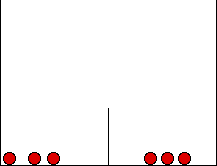

 Neil Postman,
Neil Postman, 

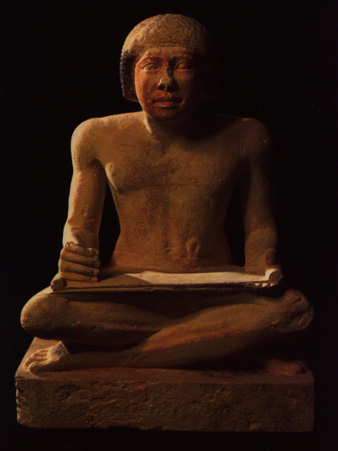
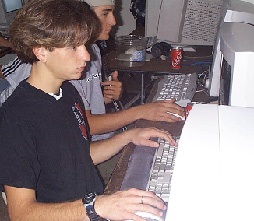



 His
point was to show readers that each new advantage derived from inventions
is wrapped around disadvantages
His
point was to show readers that each new advantage derived from inventions
is wrapped around disadvantages This hidden quality covers over the true cost of any presumed benefits
derived from new tools, or technologies that foster new techniques.
This hidden quality covers over the true cost of any presumed benefits
derived from new tools, or technologies that foster new techniques. 



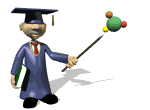 Water
Water
